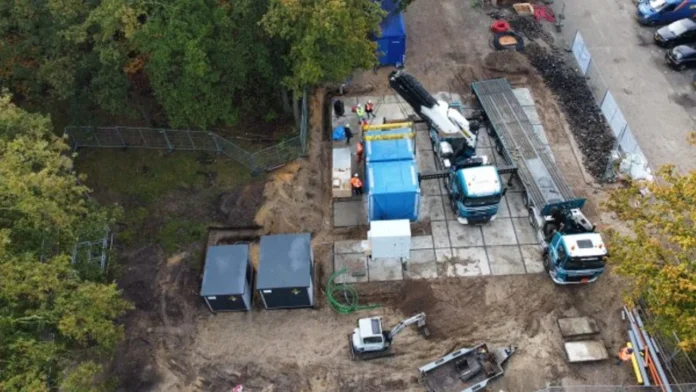The Technical University of Eindhoven has developed a battery to cope with power supply problems. The battery, which is the size of a shipping container, will be put into operation on the university campus on Monday.
‘Project Genius’
The region’s problems with grid congestion are widespread, the university must have thought. In addition, TU/e is keen to reduce energy costs after the Russian gas cut-off in 2022 caused energy bills to soar. With Project Genius, as the initiative is called, the university wants to kill several birds with one stone. At times when the TU/e’s energy consumption peaks, the battery will be triggered to ensure that the university does not use more electricity than contractually agreed. After all, this is an expensive business.
20 percent
Even when the university’s energy consumption is at a low, the battery has to store the energy. In this way, the university expects its own innovation to create 20 per cent more space on its own power grid and 20 per cent more space on its energy bill because less needs to be purchased at peak times.
AI
In addition, there will be more space on the grid for other parties in the area because the mega-battery will ensure that TU/e needs less space on the grid, according to Mark Cox, programme manager for energy at TU/e. The Genius battery, combined with intelligent software, can store energy when demand is low so that we can use it at peak times,’ says Cox.
Thanks to artificial intelligence, other users, both on campus and nearby, will not notice. On the contrary, everyone benefits. When the new Energy Act comes into force next year, neighbouring grids will be able to interconnect. The intelligence of our system approach should then ensure that everyone is always supplied with energy, without crossing borders.
Blueprint
With the project, the university also hopes to have a blueprint for adapting other power grid bottlenecks. Some 3,500 industrial sites in the Netherlands – mainly in the south of the country – would be the first to be considered. TU/e is launching the Genius project with the help of an EU grant, OPZuid, which supports projects with a social and economic impact in the south of the Netherlands.
Source: Studio040.nl
Translated by: Anitha Sevugan
















